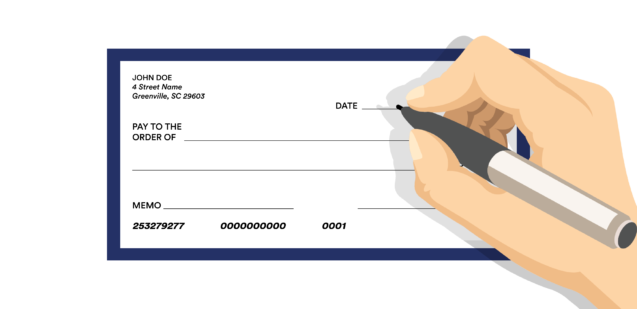Categories

As Ann Landers once said, “If you think education is expensive, try ignorance.” And while we have all heard stories about the Zuckerbergs and Jobs of the world who succeeded wildly despite not finishing college, we have also heard stories about lightning strikes and powerball jackpot winners. It can happen, but that is hardly the basis for a real plan. In fact, despite the rising costs of college education, it is still a very solid investment. College graduates’ earning potential is reliably higher, and the pay gap between college graduates and non-graduates has steadily increased. However, even if you are convinced of the value, and believe it is a worthwhile investment, it is still an expensive one.
5 Tips for Avoiding Unnecessary Student Loan Debt
Most families will rely on some combination of loans and financial aid packages to pay for college. Although finishing college with some debt may be unavoidable, there are some common mistakes that will make the hole deeper than it needs to be. Consider these 5 tips and strategies to help you avoid a heavier student loan burden than necessary.
1. Don’t leave potential scholarships unclaimed
Don’t make the mistake of assuming you need a 4.0, or to be a superstar athlete to be eligible for scholarship funds. While the number of unclaimed scholarships is often over-reported, there are a lot of scholarships available from federal, state, and educational-institution-specific sources. Completing the FAFSA (Free Application for Federal Student Aid) is a necessary step to qualify for many of them, so do that as early in the search process as you can. Some scholarships are need-based, others are for students with unusual interests or talents, or for people in specific ethnic or demographic categories, or who are interested in pursuing a particular field. Often local businesses and civic groups offer scholarships. There is generally not as much competition for these, which increases your chances of winning. Local scholarships aren’t necessarily well publicized, so ask around and to see what may be available.
2. Apply somewhere where you are in the top 25%
Every college wants to attract the best and brightest students it can. Therefore, they incentivize the applicants with higher scores by offering better financial aid packages. There are many resources available through the guidance office at your student’s high school, or through an internet search to tell you the average GPA and standardized test scores of a college’s applicants. Learn how your student compares and apply to at least a few schools where your student will be one of the stronger applicants and, therefore, a candidate for a better aid package.
3. Rearrange your resources
When the government is determining your financial aid status for a federal student loan, they assess your financial health in a variety of ways, including looking at your credit score. It’s more complicated than just how much money you have saved for college. In fact, it is too complicated to fully explain in this post, and everyone’s situation is slightly different. But the bottom line is this: not all categories of your finances are reportable. So, it makes sense to move money into the unreportable categories to increase the amount of aid you are eligible for. In many cases this will need to be done by the beginning of your student’s junior year of high school so that the documentation you use for the FAFSA in her senior year will portray your situation most advantageously. Be sure to talk with a college financial-planning expert. College is a significant investment, so it is worth paying for some expertise. It is likely to pay off with better financial aid numbers and peace of mind that you aren’t spending more than necessary.
4. Don’t borrow more than you need
This may sound obvious, but when faced with the opportunity, it can be tempting to borrow all the money available — even if it is more than absolutely necessary. It is important to teach your student to be savvy about money as the newfound-freedom of college, combined with the accompanying inundation of credit card offers, can lead to problems. The safest strategy is to be clear on the difference between wants and needs and only use student loan money for the needs connected to higher education. Yes, student loan interest rates are less expensive than credit cards, but student loan debt is unique in that it is nearly impossible to get rid of. Even if you declare bankruptcy down the road, you are not off the hook for paying off student loan debt. Students are much better off getting a part-time job on campus, getting a summer job, or finding a side-hustle to cover entertainment and pizza money — or any of those other little extras that come up during college.
5. Remember “less expensive” doesn’t necessarily mean less expensive
Although it may seem counterintuitive, it is not unusual for a private school, whose listed tuition is higher, to actually cost the same or less than a state school. Such schools often have large endowments and, therefore, have more to offer by way of scholarships and financial aid. So, don’t assume the cost is out of reach based solely on the school’s reputation or sticker price. Talk to an admissions counselor about scholarships and grants that may be available through their institution and see how low the true cost can be. You might not need to borrow as much as you expected.
Finding the right college, and finding how to pay for it can be an exciting and challenging experience. For most people going into some debt to pay for the opportunity is unavoidable. But, with careful planning and a willingness to seek out and apply for scholarships, the burden of debt won’t be quite so heavy. Our service experts are an excellent resource to assist you in understanding the ins and outs of college debt. If you would like to learn more about how paying for college fits into your larger financial picture, give us a call and let’s get started. And don’t forget, every penny you can sock away into a college savings account is one less penny you’ll need to find somewhere else.



